Blog
Capturing memories
Listening to Rajan Datar's three-part radio show 'The Tourist Trap' on BBC Radio 4 is at once enlightening and horrifying. Of course there are lots of places he visits, like Venice, with its mind-boggling stories and statistics but it's a much smaller place which resonated with me.
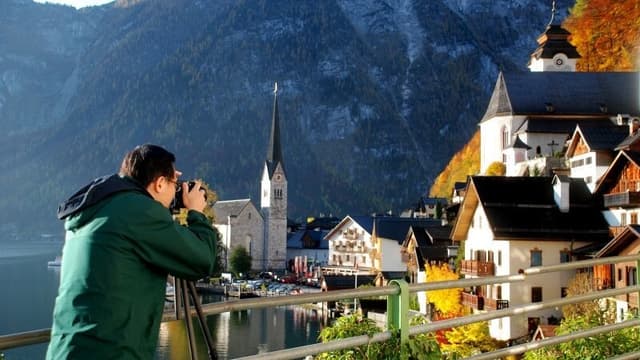
Hallstatt is a 16th century lakeside mountain village near Salzburg. It is so impossibly pretty that it was used by Disney to model the village in Frozen. With a population of just over 800, it receives...wait for it...somewhere over a million visitors a year. Though tourism isn't without benefit to the local Hallstatt community (kindergarten places, availability of subsidised housing), only a small minority of the community (maybe 150 people) derive their income from visitors. Most tourism businesses are owned by external investors so the money leaves the village as quickly as it arrives. I can't help but picture the village as carrion, pecked at from all sides.
The depressing truth seemed to be that people were there to get the photo and leave. That certainly seemed to be the gist of complaints from locals - those coming for a couple of hours, getting 'the shot' and moving on. There's a woman who's travelled from South Korea with her kids to get photos of them as princesses. That's a 13,000km roundtrip. But here's the thing, a memory isn't a photo.
If we travel in search of a particular shot, we miss the very point of travel. If you haven't had a memorable experience in a place, an image triggers no emotion, no memory. Taking a half-day trip from Salzburg to visit Hallstatt, take some photos and return provides few or no positives for the locals nor the visitor. Surely it becomes exponentially harder to enjoy a memorable experience the greater the number of visitors? Therefore a short visit to a place with large visitor numbers is near impossible to experience at all.
However, it doesn't take much to then reimagine a visit to Hallstatt if we come at it from the perspective of thinking how we want to engage with a place. I don't think any of us actually wants to imagine being part of a herd getting on and off a bus at a variety of viewpoints with a selfie at each. It's just habit, it's what we're sold, it's mostly what's on offer. But that's not an excuse, we really just need to engage our brains.
Here's what I would imagine (knowing very close to zero about the place). I will go to spend a couple of nights in Hallstatt, being sure to arrive later in day when crowds have died down. I'll leave enough time to settle in before finding a spot to enjoy sunset over the lake (admittedly I don't know if it faces north, south, east or west so this might revise down to 'afternoon light'). I'll wander the streets at night to find a little restaurant and order what the locals recommend. I'll sleep with the windows open to hear the cowbells echoing across the valley (...more conjecture). I'll wake early to set off walking in the mountains all day, or I'll load up from the breakfast table to make an impromptu picnic, find a spot on the lake and lay out my blanket and get out my book. My photos are now of my feet dangling in the lake to remind me of the day spend in the shade of a tree, reading on a blanket. Or of the boiled sheep brain I ordered in a fit of bravery/stupidity.
A travel experience isn't a defined product, extrinsic to us, it is the product of our interaction with a place, and its people. Travel as a commodity is what creates the conditions in which over-tourism thrives. It's just more stuff we are accumulating, more clutter. But really, travel is mechanics, nuts and bolts - the how. The travel experience is what we bring to it - the who/what/why? This more esoteric angle encourages us to actively consider how we want to engage with our host destination and so comes before the practicalities of where we'll go and how long we might be there. When we book to go somewhere for a week and then go about 'filling up' the time, we put the travel before the experience and I don't know that you can successfully reverse engineer things this way.
That doesn't mean you can't 'just' go to Paris for a week but I think it's an active choice to go there and see what happens. It doesn't mean you won't go to the Eiffel Tower, but you might take the stairs to the second level to get a true sense of its scale and the intricacy of its engineering. Try doing that squished into the elevators after standing in a hot line for hours. Do you actually need to go to the top, third level? Will that add to your experience or actively detract from it? If you've at least taken a moment to consider why you want to go visit the big pylon in the first place, you'll be in a much better place to actually appreciate and enjoy it when you are there.
So maybe we need to move away from thinking about all the places we want to go/see and instead think about how/what we want to experience them and let that be our guiding light.
"A travel experience is the product of our interaction with a place and its people."
Photos of Paris taken by Chris Bladon in April, 2024

Walks, Villages & Flavours of the Aracena Hills
-
£1,400 pp
- 8 days
Walks, Villages & Flavours of the Aracena Hills

When: Mar-Jun; Sep-Nov
Price: £1,140 per person
Duration: 8 days
Enjoy a slower pace of life along the cobbled paths, open forests and white villages of the Sierra de Aracena, swapping trails for tapas as you end in Seville.
Hiking the Mountain Villages of the Alpujarra
-
£1,200 pp
- 7 days
Hiking the Mountain Villages of the Alpujarra

When: Apr-Jun; Sep-Nov
Guide Price: £1,950 per person
Guide Duration: 10 days
Relax into the peaceful trails as you walk between small hotels in the mountain villages of the high Alpujarra, ending with our ultimate Granada experience.

Ultimate Barcelona with Paris by Train
-
£1,900 pp
- 8 days

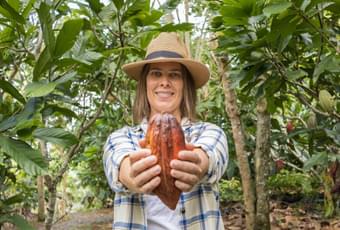
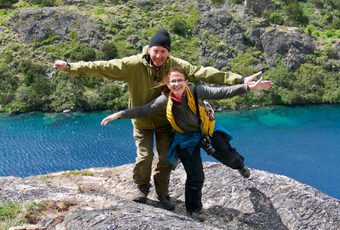


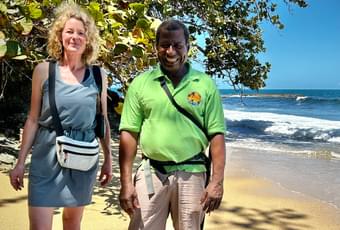
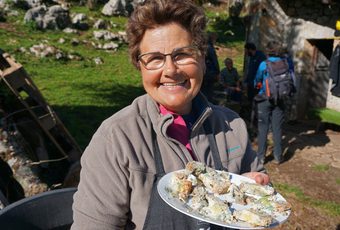
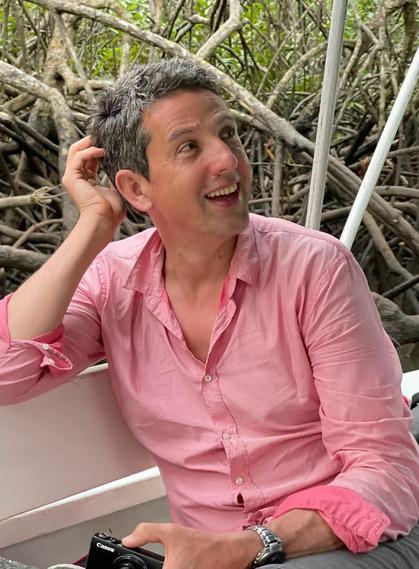
 By
By